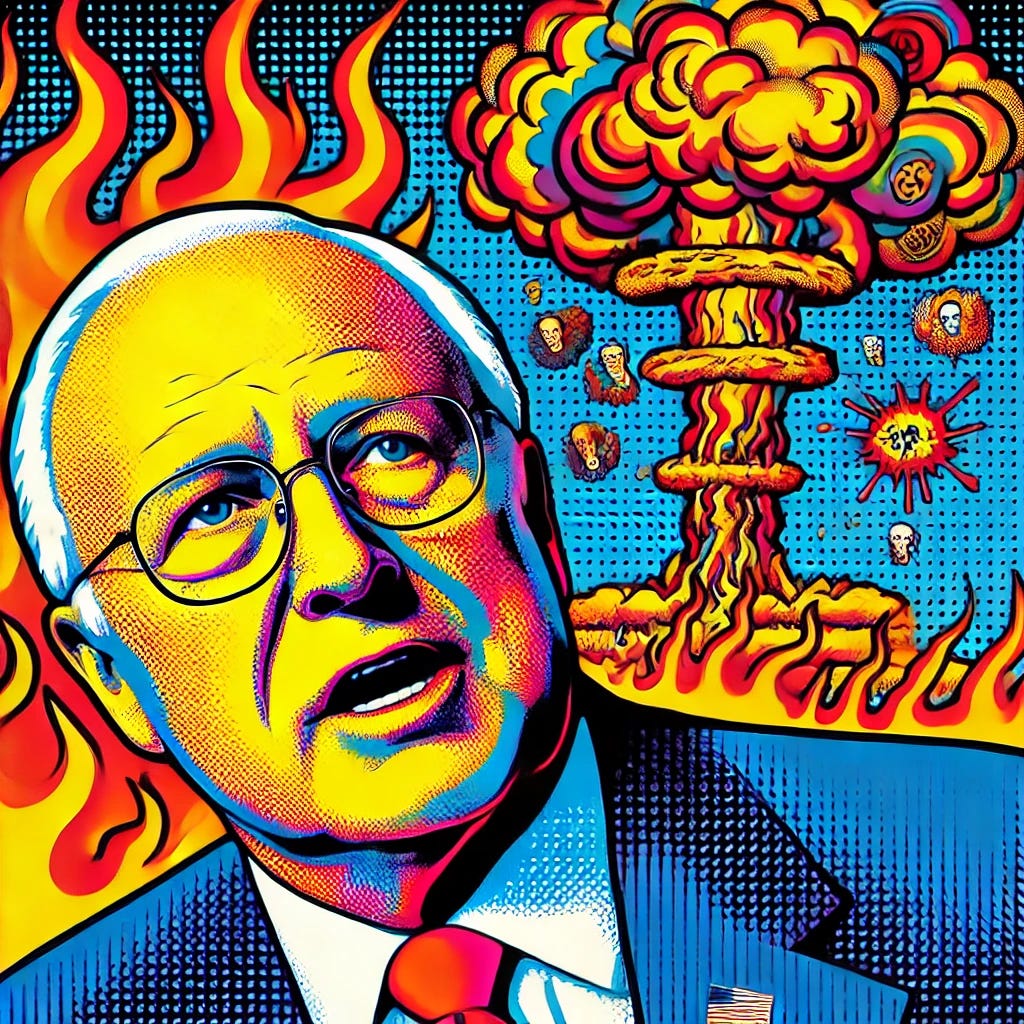Michael Gove: The Iron Mandate - a sample chapter
A J'accuse Exclusive
In May of 2009, revelations about MPs expenses began to tear through Westminster, after the Telegraph acquired a full list of all the expenses claimed by Members of Parliament. Each and every splash about ducks with second homes was another poison dart blown into the beating heart of Western Democracy.
Fresh from the Credit Crunch, the public mood was mercurial. Whilst the most damaging financial impropriety pointed towards the Government’s benches, one exalted member of the Shadow Cabinet came under intense scrutiny for his alleged claim for flipping the designation on a second home. Michael Gove, who had once been considered candidate to become Editor of the Times, and had abandoned his glittering career in the Media in order to pursue a career in politics, was suddenly having to consider his position.
If not for the energetic activity of one Dominic McKenzie Cummings, later famous for being the first man in British politics to use Facebook advertising, the rigorous education reforms he enacted would not have come to pass, and an entire generation of English would have had their dream PISA results snatched away from them. As his political career was suspended in crisis, Gove began to explore other options.
An immediate return to journalism was out of the question; resigning in disgrace from the expenses scandal from such a high-profile position was sure to follow him around in the immediate term. A project with a longer lead-in, and perhaps outside of the realm of direct politics, would be necessary to let him wash his reputation.
Michael, who had read English at Oxford, turned his mind to literature. After consulting with his wife, Sarah Vine, who agreed in principle to his decision, he contacted his literary agent and together they began drafting concepts to pitch to publishers.
A biopic about an industrious young Scottish man who attended a ‘rigorous’ private school but feels alienated by the Etonians he encounters later on in life was thrown out on account Michael being too close to the subject matter. A sports thriller about a British-Kenyan Indian girl who wants to play football in America was dismissed by his agent early on for being ‘derivative’ (Michael tells me later that he had never seen the film).
In the end they settled on an idea which had been fomenting in the back of Michael’s mind since the inauguration of President Barack Obama; ‘could he have been averred’? Could any politician, in any national circumstance, win an election against a charismatic ethnic minority?
The exegesis of this thought process led Michael to construct an alternative history whereby the events of the September 11th had been more severe, ending in the death of George W Bush, and his replacement by Dick Cheney, who, using the “Iron Mandate” of a slain President, pursued the global war on terror with uncompromising aggression, being a true believer, and not a halting convert to Neo-Conservatism.
On a wave of national fury, the draft would be implemented, followed by interventions not just in Afghanistan and Iraq, but into Saudi Arabia and Pakistan. There would be no flights from Kandahar, as there would be no place to escape for the peddlers of international terror. It was intended to be an homage to the ideals of Neo-Conservatism, an ideology to which Michael was fiercely wedded, and seemed in terminal decline with the election of Obama, and the first gentle stirrings of ‘America First’.
Alternative history has something of a low-brow reputation, but at this point Michael had no idea how severe the potential fines for the Parliamentary expenses could become, so he was minded to write something with broad appeal. A sample chapter was written, I’m told, in a ‘few feverish hours’, Michael adding, with a mischievous glint in his eye, ‘and more than a few glasses of wine’. Before his agent could send the chapter on to Harper Collins for a first review, Michael received a call from the Whips Office telling him that he merely had to repay his fines and that his position was safe.
This sample, printed below in full below, is the first time that this piece of work has seen the light of day. Readers are invited to read it in the spirit of generosity, forgiving places where the naked ideological intrusions interrupt the quality of the prose. Some edits have been made for readability.


